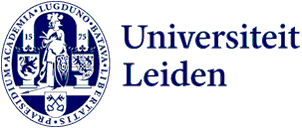
‘Ultimately, the goal is to develop antibiotics for tuberculosis with a lower risk of resistance’
Tuberculosis stands as one of the most lethal infectious diseases worldwide. A significant challenge in combatting tuberculosis lies in the emergence of antibiotic resistance triggered by genetic alterations, commonly known as mutations. These mutations can diminish the responsiveness to antibiotics, and their intricate mechanisms are still insufficiently explored.
Rosan Kuin, a Medical Delta PhD candidate at Leiden University / LUMC, employs artificial intelligence (AI) and biochemical analyses to anticipate mutations leading to diminished antibiotic sensitivity. The aim is the development of antibiotics with a reduced susceptibility to resistance. Rosan Kuin is a Medical Delta PhD candidate in the scientific program Medical Delta AI for Computational Life Sciences.
PhD research with Medical Delta
This interview is the twelfth in a series of interviews with PhD candidates and postdoctoral researchers funded by Medical Delta. Rosan's research is funded by the Medical Delta AI for Computational Life Sciences program.
What are you researching, and how did you come to this topic?
'During my pharmaceutical sciences studies at Vrije Universiteit Amsterdam, I became fascinated by the workings of medications. I find it exceptionally interesting how a single molecule can have a profound impact on the human body. Alongside pharmaceutical sciences, I also studied bioinformatics, combining computer science, biology, and statistics. Here, I discovered the world of computer-driven "drug discovery".
‘I find it exceptionally interesting how a single molecule can have a profound impact on the human body.’
After completing my studies, I sought a position where I could apply AI to molecular research, leading me to the Medical Delta AI for Computational Life Sciences programme.
Currently, I focus on researching antibiotic resistance in tuberculosis. I chose this specific topic because tuberculosis is one of the deadliest infectious diseases. Additionally, resistance to tuberculosis is caused by mutations. These mutations can reduce sensitivity to antibiotics. The exact mechanisms of these mutations are not well studied.
Using artificial intelligence, I try to predict mutations that could reduce sensitivity to antibiotics. I then validate these predictions in the laboratory by measuring the effects of mutations at the cellular level. The AI analyses provide different puzzle pieces, and with my biochemical analyses, I can check how and if they fit into the puzzle.'
What do you hope to achieve with your research?
'I've been working on my research for about two years, and I'm still in the early stages. In tuberculosis, there is a specific protein that creates resistance mutations in DNA, and so far, I am trying to gain more insight into how this protein operates. My short-term goal is to gain a better understanding of the development of resistance to tuberculosis. In the long term, I want to design molecules that can inhibit the protein-causing resistance. This way, we can address tuberculosis in the future with two approaches: administering antibiotics that inhibit the disease-causing cells and reducing resistance with engineered molecules. I believe that addressing both cause and effect can be a powerful combination.'

What are your experiences with collaboration within the Medical Delta programme?
'I constantly work between computer-driven analyses and biochemistry. At the beginning of my research, I had to learn a lot to bridge my knowledge gap. This enables me to communicate effectively, acting as a translator between both disciplines. In the first year, I focused on computer-driven analyses to identify potential resistance mutations. In the second year, I performed biochemical analyses to assess these findings. Without the collaboration between these two disciplines, my research would not be possible.
I also collaborate with people who have clinically identified resistance but do not fully understand the resistance mechanism. Using computer modeling, I can attempt to explain resistance through simulations where you can track a protein-molecule interaction over time. This creates a cycle where experimental outcomes serve as input for computer-driven analyses, and the results are then assessed with biochemical analysis.'
The previous interviewee, Yichuang Han, is curious: what are the challenges in your research?
'Honestly, I had hoped that my research would go smoother. Yet, I think you can learn the most from your biggest challenges. For example, I had identified some mutations using the computer that were thought to have a certain effect on a cell. Later, it turned out that these outcomes did not match in the laboratory. One of my biggest challenges was figuring out the cause of this inconsistency. Eventually, I discovered the cause, and this is now an insight of which I am most proud.
'From your biggest challenges, you can learn the most'
That is why I would like to encourage upcoming PhD researchers to be curious and ask questions. Without questions, you cannot find answers. For me, a PhD trajectory is not just about deepening but also about broadening one's insights. Medical Delta greatly helps me in finding interdisciplinary connections and expanding both my network and knowledge.'
Images: Guido Benschop
